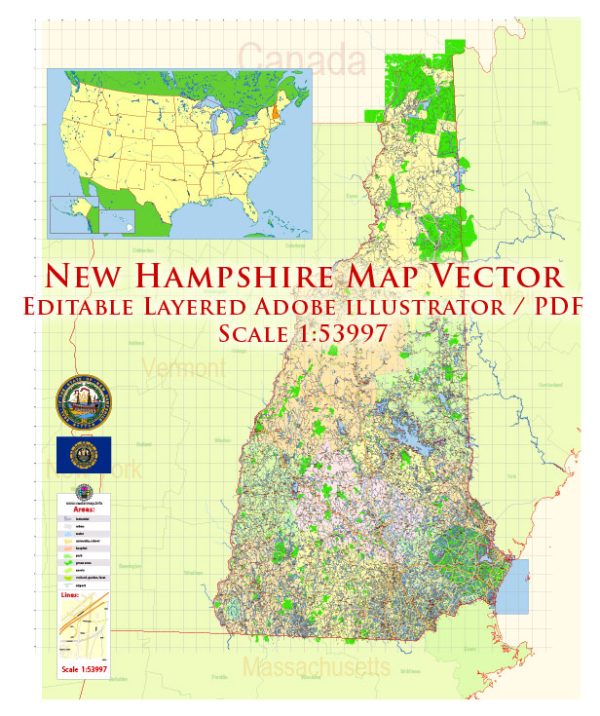New Hampshire, one of the New England states in the northeastern United States, has a history shaped by its colonial past and subsequent growth. While it is known for its natural beauty, including the White Mountains and Lakes Region, the state also has urban areas that have evolved over time.
- Colonial Settlements: The earliest European settlements in New Hampshire date back to the 17th century. Towns like Portsmouth, settled in 1623, played a crucial role in trade and commerce. These early settlements were characterized by their reliance on natural resources and trade with other colonies and Europe.
- Industrialization: In the 19th century, New Hampshire experienced industrialization. The textile industry, as well as manufacturing and mills, became prominent in cities like Manchester and Nashua. The Amoskeag Manufacturing Company in Manchester, at one point, was one of the largest textile manufacturers in the world.
- Transportation Networks: The development of transportation networks, including railroads and later highways, played a significant role in shaping urban areas. Cities expanded along these transportation routes, facilitating the movement of goods and people.
- Economic Shifts: Over time, the state’s economy shifted from traditional manufacturing to services and technology. The decline of the textile industry led to diversification, and today, New Hampshire’s economy includes a mix of manufacturing, finance, healthcare, and tourism.
- Urban Renewal: Like many other states, New Hampshire experienced urban renewal initiatives in the mid-20th century. These projects aimed to revitalize urban areas but often led to the demolition of historic structures and changes in the urban landscape.
- Population Growth: New Hampshire has experienced population growth over the years, particularly in southern urban areas. This growth has led to suburban development around cities like Manchester and Nashua.
- Preservation Efforts: There have been ongoing efforts to preserve and revitalize historic districts in various cities, recognizing the importance of maintaining the architectural and cultural heritage of the state.
- Technology and Innovation: In recent decades, there has been a focus on technology and innovation, with the emergence of tech hubs and research institutions contributing to the state’s economic development.
New Hampshire’s urban development history reflects a mix of colonial heritage, industrialization, economic shifts, and contemporary trends. The state continues to balance economic growth with the preservation of its natural and historical assets. For the most current and detailed information, it’s recommended to refer to recent publications or official state resources.


 Author: Kirill Shrayber, Ph.D. FRGS
Author: Kirill Shrayber, Ph.D. FRGS